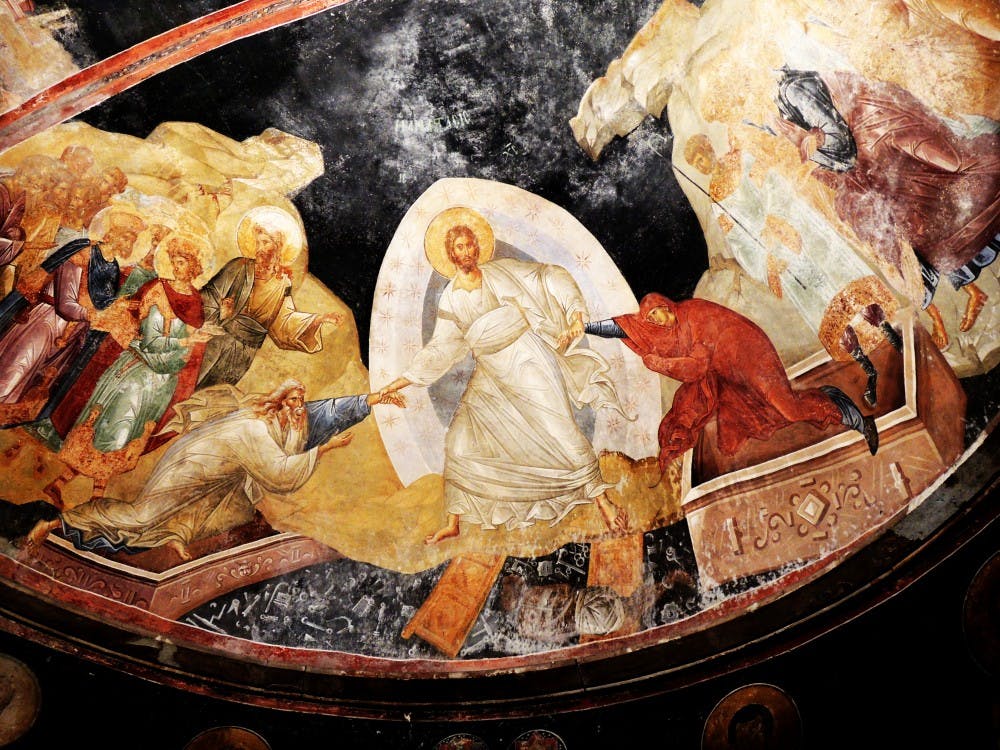by Valerie Smith |
When I attended a service at my Greek Orthodox church this summer, I experienced a seemingly mundane event that led me to an insightful reminder about life.
As I entered the entryway of the church, I followed my traditional practice of lighting three candles before venerating an icon and attending the service. I lit my first candle easily, but the second candle refused to light. It briefly caught aflame, struggled, and stubbornly fizzled out with most of the burnt wick falling away. No matter how many times I tried to light it, it refused. My third candle, however, contained a long wick and once lit, it fiercely burned.
I entered the church service and pondered what I had just witnessed. I glanced around at the icons upon the walls of the church until I realized that my answer was within the icon of the “Anastasis,” or Resurrection. In this icon, Christ is seen as the Savior standing upon the gates of Hades with outstretched hands towards Adam and Eve to pull them out of the darkness. Both Adam and Eve also have their hands outstretched towards Christ.
This image suddenly became symbolic to me with the wicks of the candles, which could readily be lit and become emblazoned with life. The candle without a wick that refused the light, however, symbolized an unwillingness to reach back towards God and welcome his presence.
If life is approached with an unwillingness to be in communion with others and an avoidance to building relationships, an individual will remain in darkness like Adam and Eve. Although forming relationships with others can be viewed as bridge building, establishing bonds which promote personal and community development can also be described through the idea of climbing a ladder. Each step in the ladder leads out of darkness and is defined by the relationships established with others. By forming multiple bonds with others, individuals become part of communities and gain the ability to ascend together into enlightenment.
The essential importance of forming meaningful relationships, according to Bishop Kallistos Ware in The Human Person as an Icon of the Trinity is that, “Either we love others, after the image of God the Trinity, or we condemn ourselves to the void.” The ladder is affixed and guided by one’s own beliefs leading to personal goals such as coming into communion with God and self-fulfillment.
At the University, we are encouraged to reflect the message of building positive relationships within our community by being involved with activities such as clubs, service projects, being part of various teams and participating in other spiritual or social events. It is important to participate in such activities so that we may continue to build positive connections with everyone we encounter. It is necessary to create and nurture new relationships throughout life in order to allow ourselves to be pulled out of the desolate void of darkness and into the light of communion with others. We must be receptive to creating such relationships, however, so that we may further establish communal unity and ascend our illuminated path towards God. Valerie "Vasiliki" Smith is junior nursing student. She can be reached at smithv17@up.edu.








